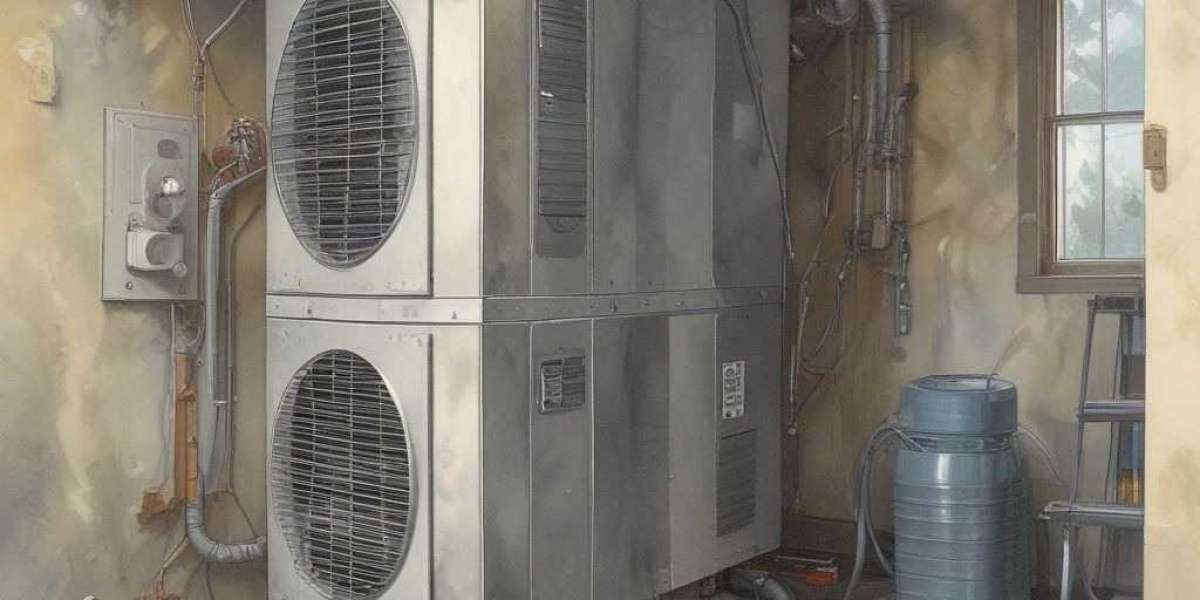When it comes to maintaining a comfortable and energy-efficient home, selecting the right HVAC (Heating, Ventilation, and Air Conditioning) system is crucial. With the variety of options available today, it can be overwhelming to determine which system best meets your needs. This guide will help you understand the essential factors to consider when choosing an HVAC system and how to ensure optimal performance and efficiency.
Understanding HVAC Systems
1. Types of HVAC Systems
HVAC systems come in several types, each designed to meet different needs and preferences:
Central Air Conditioning: Ideal for cooling large spaces, central air conditioning systems use ducts to distribute cool air throughout your home.
Ductless Mini-Split Systems: These systems are perfect for homes without existing ductwork. They provide both heating and cooling and can be more energy-efficient than traditional systems.
Heat Pumps: Heat pumps are versatile systems that can both heat and cool your home. They are known for their energy efficiency and can be a great option for moderate climates.
Furnaces: Furnaces are used primarily for heating and are available in different types, including gas, oil, and electric. They are often paired with central air systems for year-round climate control.
2. Key Factors to Consider
When choosing an HVAC system, consider the following factors to ensure you make the best decision for your home:
Size of Your Home: The size and layout of your home will significantly influence the type of HVAC system you need. A system that is too small will struggle to maintain comfortable temperatures, while one that is too large can lead to inefficiency and increased costs.
Energy Efficiency: Look for systems with high Seasonal Energy Efficiency Ratio (SEER) ratings for air conditioners and high Annual Fuel Utilization Efficiency (AFUE) ratings for furnaces. Higher ratings indicate better efficiency and lower operating costs.
Climate: Your local climate will impact your choice of HVAC system. For example, if you live in a region with extreme temperatures, a system with robust heating and cooling capabilities will be essential.
Budget: HVAC systems can vary widely in price. Consider both the initial cost and the long-term operating costs. Investing in a high-efficiency system may cost more upfront but can save you money on energy bills in the long run.
The Importance of Professional Installation
1. Why Professional Installation Matters
While it might be tempting to opt for DIY installation or hire a less experienced technician to save money, professional installation is crucial for several reasons:
Proper Sizing and Placement: A professional HVAC technician will ensure that your system is correctly sized and placed for optimal performance. Improper installation can lead to inefficiencies and increased wear and tear on the system.
System Optimization: Professionals can fine-tune your system to ensure it operates at peak efficiency. This includes calibrating the thermostat, checking for leaks, and ensuring all components are functioning correctly.
Warranties and Safety: Many HVAC systems come with warranties that are only valid if the system is installed by a licensed professional. Additionally, improper installation can lead to safety hazards, such as gas leaks or electrical issues.
2. Choosing a Reputable HVAC Contractor
Selecting the right HVAC contractor is essential for ensuring a successful installation. Here are some tips for finding a reputable professional:
Check Credentials: Verify that the contractor is licensed and insured. This ensures that they meet industry standards and are covered in case of accidents.
Read Reviews: Look for online reviews and ask for references from past clients. Positive feedback and recommendations can indicate a reliable and trustworthy contractor.
Get Multiple Quotes: Obtain quotes from several contractors to compare pricing and services. Be wary of prices that seem too good to be true, as they may indicate subpar work or hidden costs.
Maintenance Tips for Optimal Performance
1. Regular Maintenance Tasks
To keep your HVAC system running smoothly and efficiently, regular maintenance is essential. Here are some key tasks to include in your maintenance routine:
Change Filters: Replace air filters every 1-3 months to ensure proper airflow and reduce strain on the system.
Clean Coils and Ducts: Dirty coils and ducts can hinder system performance and lead to increased energy consumption. Schedule professional cleanings as needed.
Check Thermostat Settings: Ensure that your thermostat is calibrated correctly and set to the desired temperature. Consider upgrading to a programmable or smart thermostat for added convenience and efficiency.
Inspect Insulation: Check insulation around ducts and pipes to prevent heat loss and maintain energy efficiency.
2. Scheduling Professional Maintenance
In addition to routine maintenance, schedule annual check-ups with a professional HVAC technician. Regular inspections can help identify potential issues before they become major problems and ensure that your system operates at peak efficiency.
Benefits of Upgrading Your HVAC System
1. Improved Energy Efficiency
Upgrading to a newer, more efficient HVAC system can significantly reduce your energy consumption and lower your utility bills. Modern systems are designed with advanced technology to provide better performance and efficiency.
2. Enhanced Comfort
Newer HVAC systems often come with advanced features that enhance comfort, such as better temperature control, quieter operation, and improved air quality.
3. Increased Home Value
A well-maintained, high-efficiency HVAC system can increase the value of your home. Potential buyers often view a modern, energy-efficient HVAC system as a valuable asset.
Conclusion
Choosing the right HVAC system for your home is a critical decision that affects both your comfort and your energy bills. By understanding the different types of systems available, considering key factors, and investing in professional installation and maintenance, you can ensure that your HVAC system performs efficiently and effectively.
For more information on selecting and maintaining your HVAC system, Read more. This resource offers valuable insights and expert advice to help you make informed decisions and enjoy optimal comfort in your home.
By following these guidelines, you can make a well-informed choice and keep your HVAC system running smoothly for years to come. If you have any questions or need assistance with your HVAC needs, don’t hesitate to reach out to a qualified professional.








